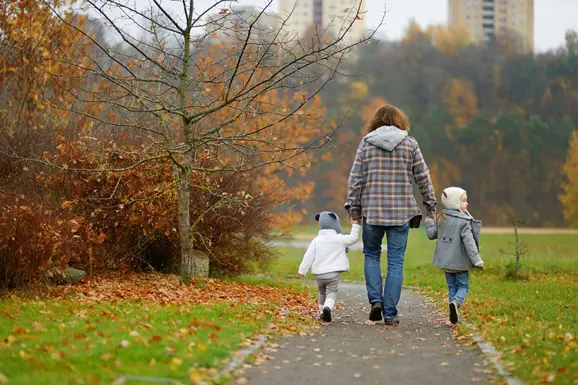Should I tell my children that their loved one is dying?

When someone is seriously ill, there may come a point when you know that they are going to die. This may be incredibly difficult to come to terms with, and you will be faced with the decision about when and how to tell the child you’re supporting that someone important to them is dying.
Why you should tell a child or young person that someone important to them is going to die
Telling a child or young person that their important person is going to die will be one of the hardest conversations you will ever have to have. However, from our experience with many bereaved families, we believe that it is better for the child to know the truth, and that it is best for them to hear it from their parent or primary carer.
Children and young people have an ability to deal with the truth that adults often underestimate. They may have already realised that things have changed or developed from overheard conversations or from changes in the emotions and behaviour of the people around them. Partial or inaccurate information can be more worrying than the truth for children and young people because they may fill in the gaps or create their own narrative, which can cause additional distress, upset, and anxious feelings.
How to tell a child that someone is dying
How you explain the situation to the child will depend on their age and level of understanding. When you are telling them that their person is going to die, use simple language that you know they will understand or that you can explain.
Key points to consider when talking about it:
- “The doctors have tried every way possible to treat the illness, but it was too severe.”
- “It is nobody’s fault.” It’s important to make sure to specifically say it is not the child’s fault.
- Stick to facts and simple words, with kindness.
- Be realistic about timescales (if you are aware of them) especially if death is imminent e.g., “The person does not have long to live and may die in the next few hours or days.”
Think of your first conversation as the first piece in a jigsaw. In further conversations, you can add in more pieces of information to build up the jigsaw. It is important to keep the information flowing and to keep checking what the child has understood. Answer questions as honestly as you can. It’s okay if you don’t know the answer straight away but let them know you will find out and come back to them.
These days will be heartbreakingly sad for everyone, but with support, the child will be able to look back on this time as having been full of love and closeness.
How to help a child say goodbye to their person
Telling a child that someone important to them is likely to die allows them to think about the person and perhaps to communicate with them in some way to say goodbye.
When a person is seriously ill, the child may not be able to see them in person because of the need for the person to be in isolation or perhaps in a special hospital ward. Instead, maybe they could make or sign a card, send a picture or a recorded message, or even video call if possible. This will be helpful to the child in future, because they will be able to think back on how they did something for their person before they died.
Use creativity whenever possible to support the expression of the child or young person’s feelings. Suggest to them to write or draw how they are feeling, or they could use our activities, or find supportive age-appropriate books on our suggested reading list.
Where to get support
Winston’s Wish is a charity that helps children, teenagers and young adults (up to the age of 25) find their feet when their worlds are turned upside down by grief. Through information about grief, on-demand helpline, email and live chat services, bereavement support and counselling, we support young people to understand their feelings, process their grief and find ways to move forward with hope for a brighter future.
We also help the adults who are caring for young grieving people, including parents, school staff and healthcare professionals, through information, resources, training and on-demand services.
Our team of bereavement specialists are available to speak with right away. No appointments or waiting lists, just real-life grief support. Call us on 08088 020 021 (open 8am-8pm, weekdays), email ask@winstonswish.org, use our online chat (open 8am-8pm, weekdays) or text or WhatsApp us on 07418 341 800 (open 8am-8pm, weekdays). You must be 13 or older to receive support via WhatsApp.
For urgent support in a crisis, please call 999.

Other articles you might find helpful

Preparing a child for the death of a parent by cancer
It will be very difficult for children and young people when a parent is seriously ill and may die. Here are some of the ways in which you can prepare a child.

Publications and resources
We offer a range of helpful and practical resources, information and specialist publications for families and professionals supporting grieving children. Access our publications and resources today.
Connect with us
Sign up to our newsletter and follow us on social media for all our latest news and advice on supporting grieving children and young people.

